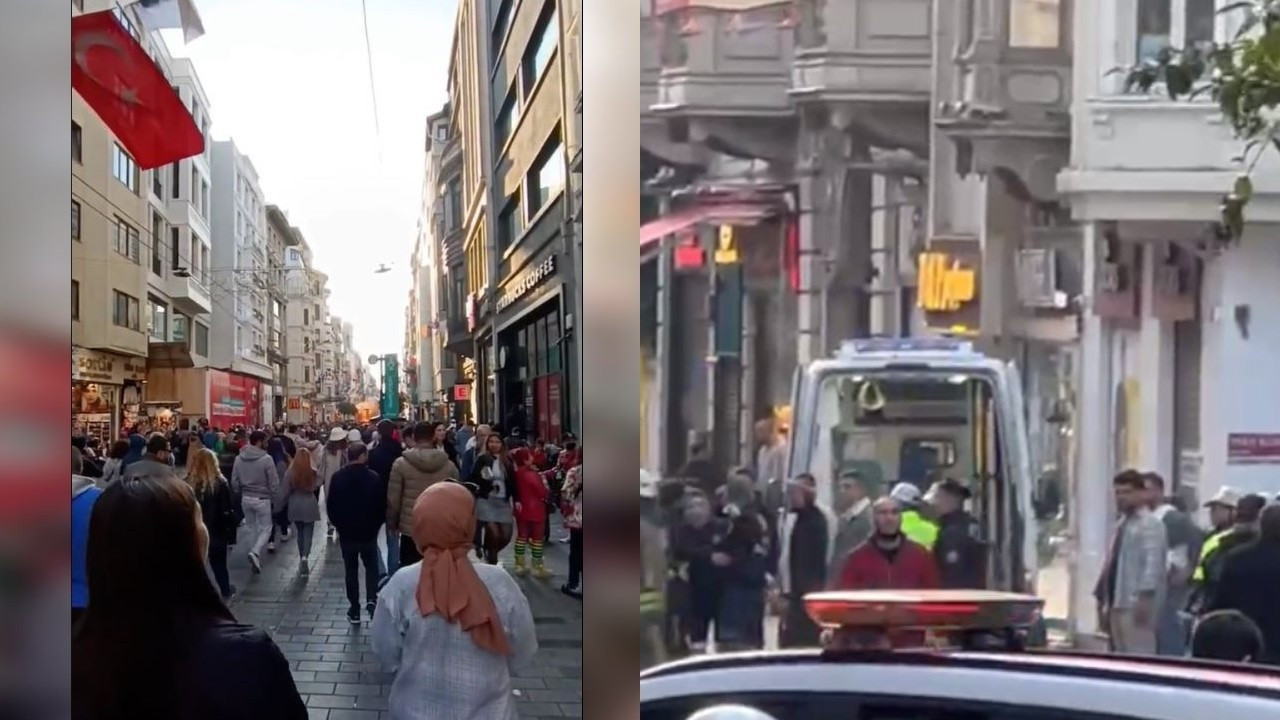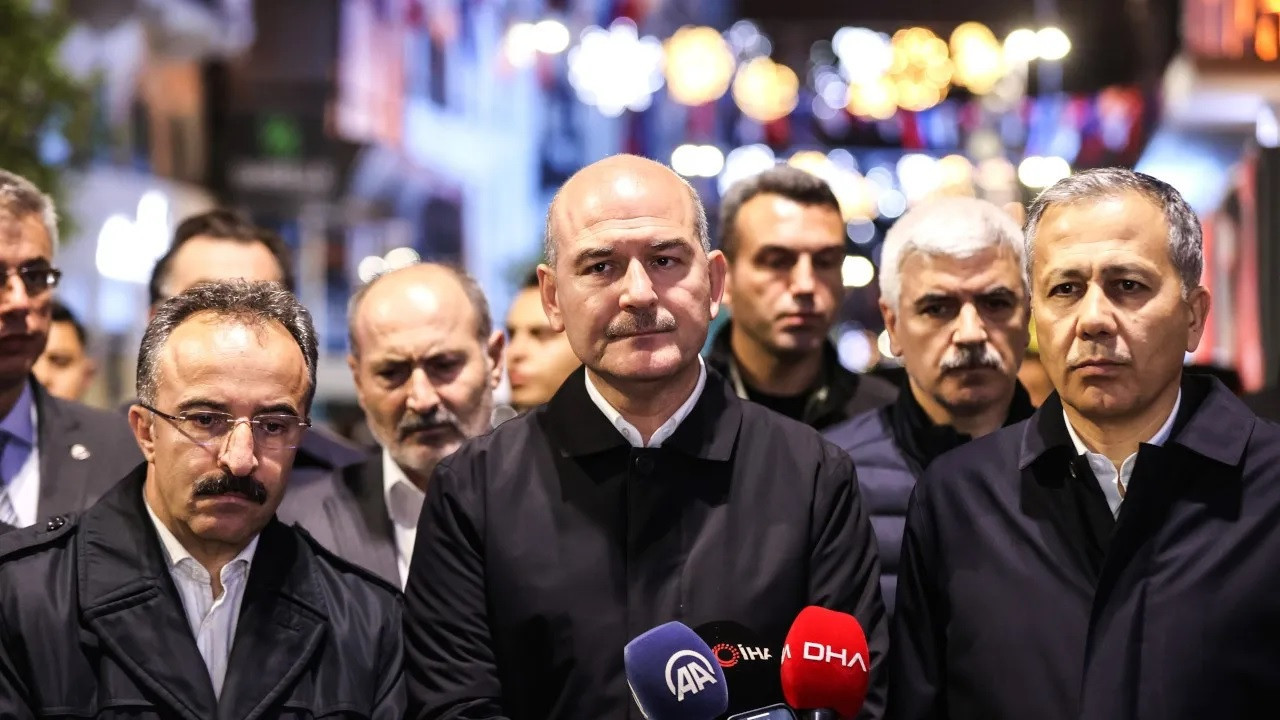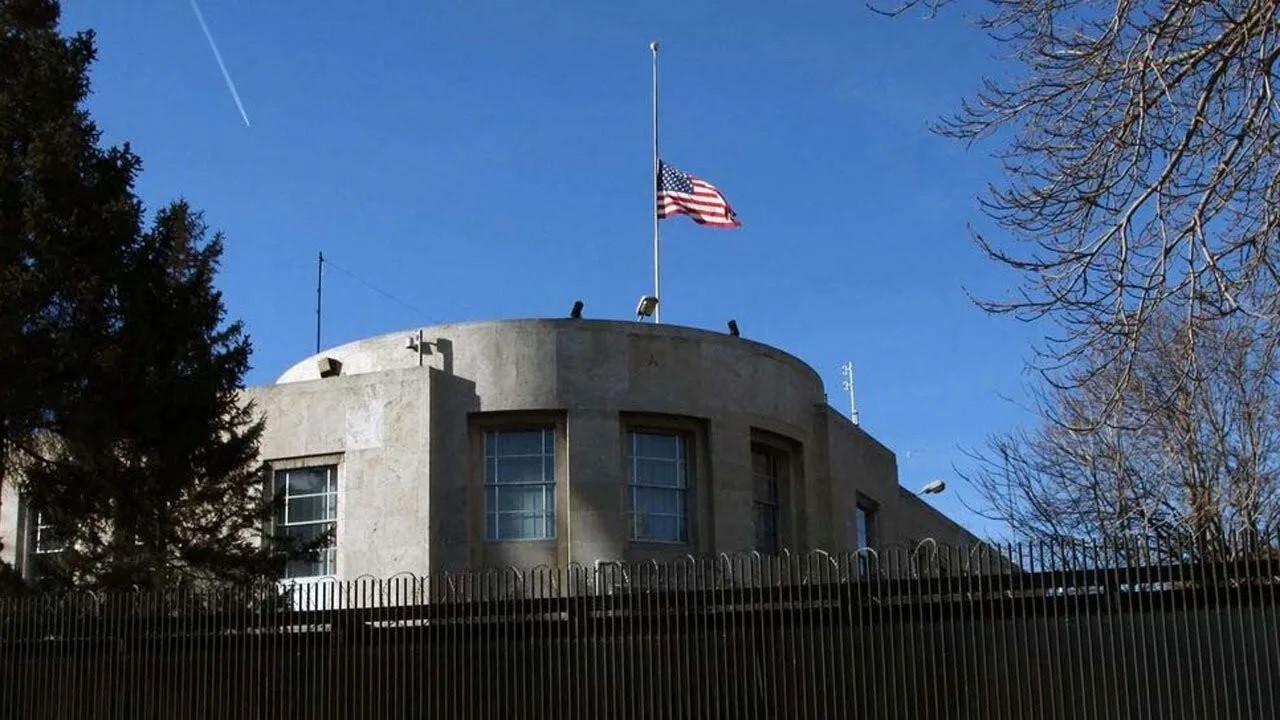Turkish government agency confirms limiting internet after deadly blast
Turkey’s Information and Communications Technologies Authority, BTK, confirmed that they limited the bandwidth of especially social media platforms after a blast hit Istanbul’s Istiklal Avenue, killing six people. Several people reported problems accessing the internet because of the limitation.
Duvar English
Turkey's Information and Communication Technologies Authority (BTK) on Nov. 13 limited the bandwidth of internet platforms.
⚠️ Confirmed: Live network data show that social media platforms Twitter, Instagram, YouTube and Facebook have been restricted in #Turkey after a deadly explosion in #Taksim, Istanbul; authorities issued a broadcast ban following the incident
— NetBlocks (@netblocks) November 13, 2022
📰 Report: https://t.co/Xww9RgoNlu pic.twitter.com/75DMsF5QLi
The move came after a blast hit Istanbul’s iconic Istiklal Avenue, killing six people and injuring 81.
BTK cited “the unrealistic posts that emerged after the bombing” as the reason for the limitation which prevented millions of people accessing the internet, especially social media platforms.
DownDetector shows not only Twitter bu access problems with all social media services from Türkiye. If you do not have access to a reliable VPN service (which is also not blocked from Türkiye), you are then in the dark right now. pic.twitter.com/4E5arisUXs
— Yaman Akdeniz (@cyberrights) November 13, 2022
The Radio and Television Supreme Council (RTÜK) also imposed a broadcast ban on the blast.
Several lawyers and experts deemed BTK’s move “unlawful.”
Prominent human rights lawyer Kerem Altıparmak said that “The whole world is talking about the bomb that exploded in Turkey right now, except Turkey. Because we have a broadcast ban, an access block. The whole world can write about Turkey, but the citizens of the Republic of Turkey cannot write or hear what is written.”
“There was an explosion in the center of the country's largest city. People are dead, injured, everyone is curious, but society does not have the right to hear about it. Why? RTÜK does not see it appropriate. The benefit of society is achieved by reaching the right information as quickly as possible. Not by ban,” he added.
Ülkenin en büyük şehrinin merkezinde bir patlama olmuş. İnsanların ölmüş, yaralanmış, herkes merak içinde ama toplumun buna ilişkin haber alma hakkı yok. Neden? RTÜK uygun görmüyor da ondan.
— Kerem ALTIPARMAK (@KeremALTIPARMAK) November 13, 2022
Toplumun yararı, doğru bilgiye en hızlı şekilde ulaşmakla sağlanır. Yasaklayarak değil. https://t.co/YD56FNYTMR
Prof. Yaman Akdeniz, a prominent academic and cyber-rights expert, said that “After the explosion in Istanbul, access to social media platforms from Turkey has either slowed down or completely stopped. Arbitrary bandwidth limitation practices applied to social media platforms are a heavy interference with the public's freedom of expression and right to information. Such practices should be stopped immediately.”
Sosyal medya platformlarına yönelik uygulanan keyfi bant daraltma uygulamaları halkın ifade özgürlüğü ve bilgi edinme haklarına ağır bir müdahaledir. Bu tip uygulamalara derhal son verilmelidir.
— Yaman Akdeniz (@cyberrights) November 13, 2022
Former ruling AKP minister and currently opposition DEVA (Democracy and Progress) Party leader Ali Babacan said in a tweet that “I can tweet this thanks to VPN. Those who impose a broadcast ban, supposedly so that the public does not panic, are scaring everyone even more by suppressing all the media. (The Presidency) Do not undermine the public's freedom of information, do not scare the nation.”
Bu tweeti VPN sayesinde paylaşabiliyorum.
— Ali Babacan (@alibabacan) November 13, 2022
Güya halkın paniğe kapılmaması için yayın yasağı getirenler, tüm medyayı baskılayarak herkesi daha çok korkutuyor.@tcbestepe Halkın haber alma özgürlüğünü baltalamayın, milleti korkutmayın.
On the other hand, BTK and its chair Ömer Abdullah Karagözoğlu shared condolences for the blast while access to the internet was limited, which social media users criticized.
İstiklal Caddesi’nde meydana gelen patlamada hayatını kaybeden vatandaşlarımıza Allah’tan rahmet, yaralılara acil şifalar diliyoruz.
— BTK (@BTKbasin) November 13, 2022
Milletimizin başı sağ olsun. pic.twitter.com/iCPdhiDLo6
Television news reports showed images of a person, who appeared to be a woman, leaving a package below a raised flower bed in Istiklal Avenue with a tramline running the length of the street.
Interior Minister Soylu said they arrested the woman behind the bombing, blaming the “PKK/YPG”.
Istanbul has been targeted in the past by Kurdish, Islamist and leftist militants. An offshoot of the PKK claimed twin bombings outside an Istanbul soccer stadium in December 2016 that killed 38 people and wounded 155.

 Explosion hits Istanbul’s Istiklal Avenue, killing 6 peopleDomestic
Explosion hits Istanbul’s Istiklal Avenue, killing 6 peopleDomestic Person behind Istiklal bombing arrested, minister saysDomestic
Person behind Istiklal bombing arrested, minister saysDomestic Turkish Interior Minister: We reject US condolences over deadly blastDiplomacy
Turkish Interior Minister: We reject US condolences over deadly blastDiplomacy